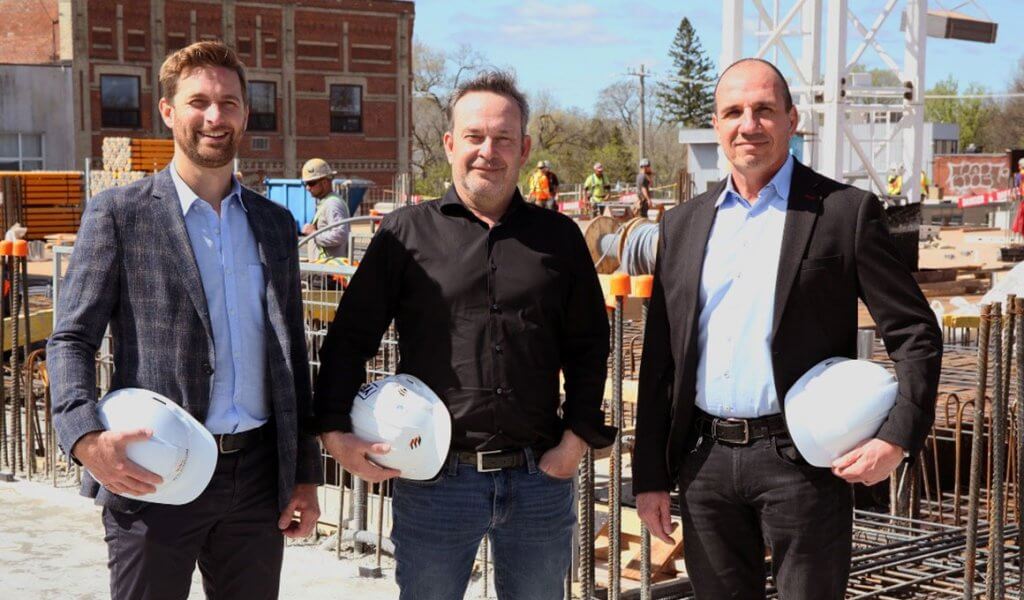Toronto’s Latest Housing Expansion Plan Aims to Add 65,000 Affordable Units, Focusing on Purpose-Built Rentals to Meet Rising Demand
Toronto’s ambitious goal of adding 65,000 affordable housing units over the next decade highlights the city’s urgent need to address a growing housing shortage. This target is both a challenge and an opportunity, placing renewed emphasis on purpose-built rentals as a sustainable, long-term solution to meet high rental demand. Recently, Toronto City Council reinforced this commitment by prioritizing purpose-built rentals and affordable housing in its latest housing strategy, which includes streamlining policies to attract new rental development. Meeting these objectives requires innovative financing, policy support, and efficient construction management to ensure that projects are completed on time and within budget. As the housing crisis intensifies, a vertically integrated approach to construction has become essential, allowing for more efficient workflows, enhanced quality control, and the ability to navigate the complexities of purpose-built rental developments to meet housing needs.
Market Pulse
- The City of Toronto has outlined a comprehensive plan to build 65,000 affordable housing units, emphasizing the necessity for substantial federal and provincial funding to achieve this goal. Toronto’s new plan to build 65,000 affordable housing units hinges on billions in provincial, federal funding – CBC
- City Council endorse the development of a new Purpose-built Rental Homes Incentives stream under the City’s Rental Supply Housing Program to support 20,000 rental homes, including up to 16,000 purpose-built rental homes and at minimum 4,000 affordable rental homes. Build More Homes: Expanding Incentives for Purpose Built Rental Housing – Toronto.ca
- Canada’s condominium and apartment construction market is facing various challenges in 2024, as rising costs, slower demand, and financing difficulties put pressure on developers. Canadian Condominium Construction Challenges – Canadian RE Magazine
- “The GTA housing market faces structural challenges that have driven up construction costs, including unattainably high government fees and taxes – which are among the highest in Canada.” – David Wilkes, president and CEO of BILD. Without bold steps, housing crisis in the GTA is going to get far worse – Construct Connect
The Strategic Role of Integrated Construction Management is Key to Expanding Purpose-Built Rental Developments to Meet Toronto’s Affordable Housing Expansion Target
Purpose-built rental (PBR) housing is key to providing sustainable, long-term rental options that support Toronto’s expanding population. The recent announcement by Toronto City Council further underscores the need for purpose-built rentals, highlighting them as a primary vehicle for affordable, quality rental supply. Unlike condos, PBRs are specifically designed and built for rental purposes, meeting durability and tenant-focused standards over time. As demand for affordable housing rises, purpose-built rentals offer a reliable solution to address diverse needs in Toronto’s fast-growing market.
Government Incentives and Support
Toronto’s success in meeting its housing targets heavily depends on government incentives. The City’s latest housing strategy, which focuses on incentivizing purpose-built rental construction, highlights the importance of federal and provincial support in reducing costs and making affordable projects viable. These incentives ease financial burdens on developers and encourage private sector participation, supporting strategic construction management approaches that align with long-term housing goals.
Feature Article: Addressing Toronto’s Housing Crisis with Bold Strategies
Without bold steps, housing crisis in the GTA is going to get far worse: BILD CEO
A recent article from Canada Construct Connect titled, “Without Bold Steps, Housing Crisis in the GTA is Going to Get Far Worse,” outlines the need for innovative action in addressing Toronto’s housing crisis. David Wilkes, CEO of BILD, stresses that without meaningful steps and reinforced partnerships, the housing situation will continue to escalate, making affordability a significant challenge for many residents. He calls for specific measures, such as enhanced government incentives and faster approval processes, to support the construction of affordable housing.
The Altus Group’s latest study for BILD highlights a sharp decline in housing application submissions since their peak in 2021, posing a risk to future housing supply. This drop is attributed to recent policy shifts, such as the removal of site plan controls for smaller projects, and challenging economic conditions.
These insights align closely with Clifton Blake’s in-house construction management team, CB Wilkinson, whose integrated approach directly aims to address the challenges Wilkes describes. By managing projects from inception through completion, CB Wilkinson ensures high standards of quality and efficiency, minimizing delays and costs—essential factors in large-scale affordable housing projects. This approach enables CB Wilkinson to meet Toronto’s housing goals by delivering high-quality purpose-built rental units that contribute to the city’s affordable housing stock.
The Role of CB Wilkinson in Construction Management
CB Wilkinson, a collaboration between Clifton Blake and Wilkinson Construction, exemplifies the power of integrated construction management. Through vertical integration, CB Wilkinson enhances the coordination and execution of projects, aligning outcomes with Clifton Blake’s strategic vision for sustainable rental housing. This in-house approach enables consistent quality control and timely project delivery, ensuring that developments meet the highest standards.
Advantages of Integrated Construction Management
- Enhanced Efficiency: Streamlined processes reduce delays and cost overruns, which are crucial for large-scale affordable housing projects.
- Quality Assurance: Direct oversight ensures adherence to high standards, resulting in durable and tenant-friendly housing.
- Cost Control: Integrated management optimizes budgeting and resource allocation, maximizing the impact of government incentives and funding.

Pictured: CB Wilkinson Executive Team – Jeff Wilkinson, Wes Myles, Rob Romeo Sr.
Toronto’s affordable housing initiative requires the collaborative efforts of public and private sectors. Through CB Wilkinson, Clifton Blake contributes to this vision by leveraging integrated construction management to deliver high-quality, purpose-built rentals. This synergy is essential for addressing Toronto’s housing needs and providing sustainable, affordable housing for the city’s residents.
